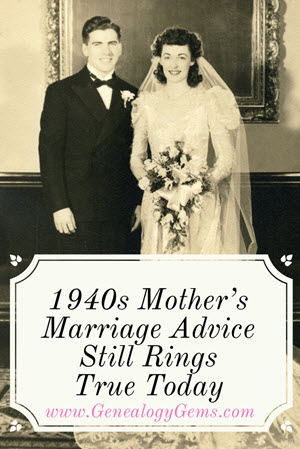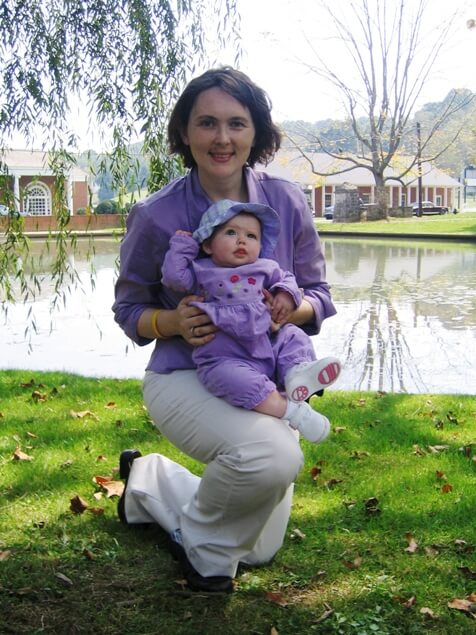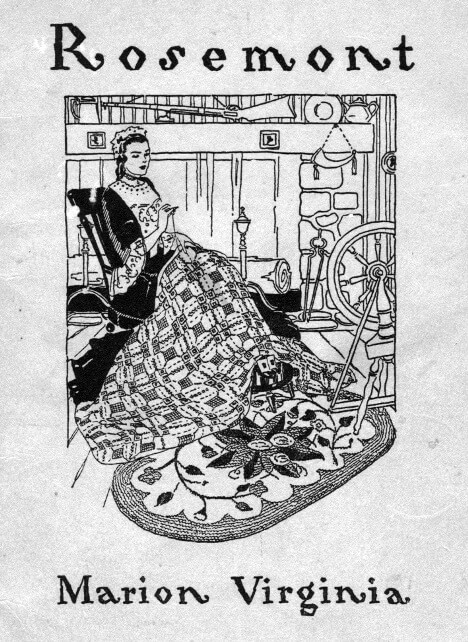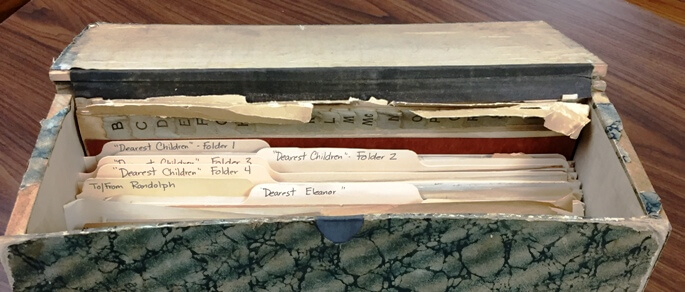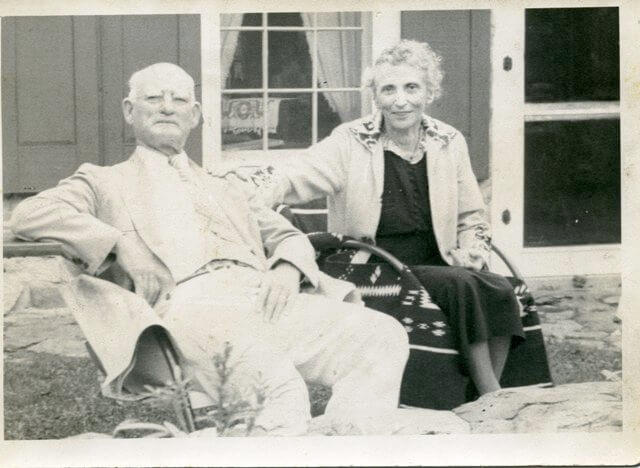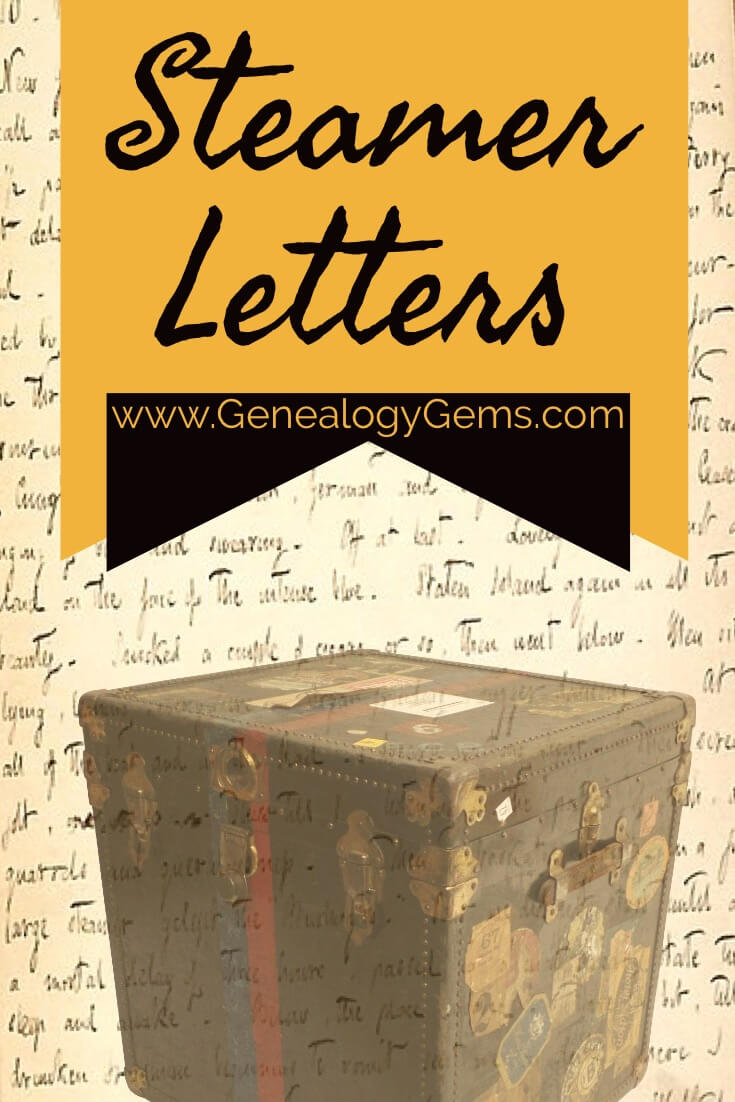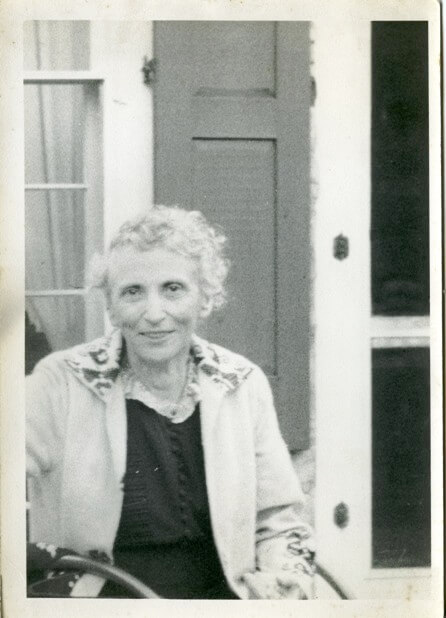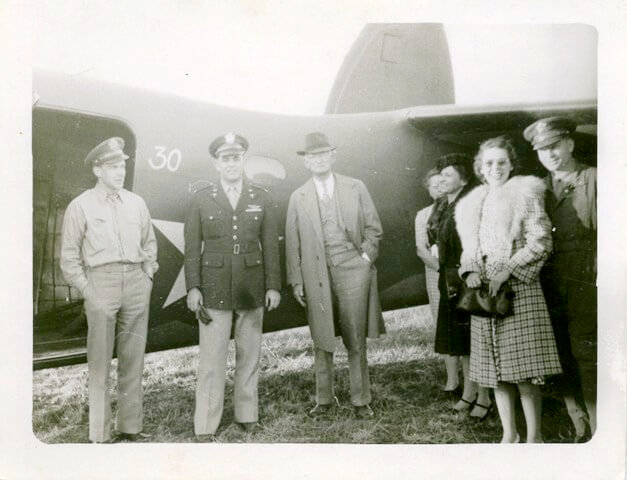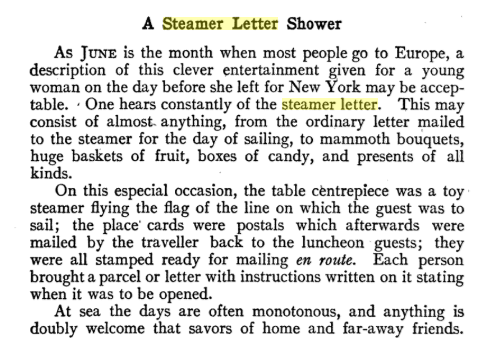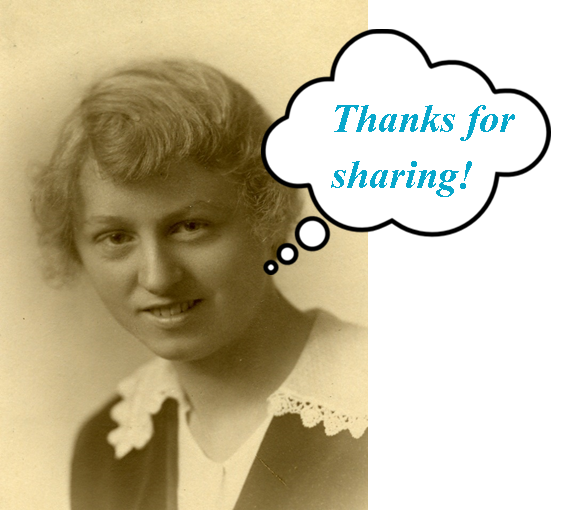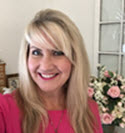1940s Mother’s Marriage Advice for Newlyweds Still Rings True Today
This marriage advice for newlyweds, written by a loving mother in 1940, shows that some principles for a happy marriage are timeless—including a respectful mother-in-law who stays out of the marriage. Genealogist Margaret Linford shares an excerpt from 500 pages of loving wisdom written by a successful Depression-era businesswoman to her children and grandchildren. But first, Margaret reflects on what it meant in her own life to become a mother.
It was a day that forever changed my life: April 20, 2004. That is the day I became a mother. Up until that point, I had only ever known how to be a daughter and granddaughter. The family tree had always ended with me. The emotions of that day will linger with me throughout my life.
My husband, Blair, and I had eagerly anticipated the birth of our daughter, Amelia. For several months, we prepared by stockpiling all manner of baby necessities: diapers, wipes, baby clothes, blankets. When the day finally came, Blair and I found ourselves anxiously waiting in the hospital room, passing time by imagining what life would be like with an infant in the house. The hours seemed to drag on and on. Finally: a flurry of activity. Doctors and nurses dutifully took their places, gave instructions and, at last, whisked away our newborn daughter to be measured, weighed, bathed and diapered.
In the still, early-morning hours, following the parade of doctors and nurses, Amelia and I had our first few moments of peace and quiet. I held her and tried to memorize every fold and crease of this tiny new member of our family who had given me the title of “Mother.” I tried to discern whose nose, eyes, chin and mouth she had inherited.
More than physical characteristics, I wondered who she would become. Would she inherit her Grandma Overbay’s incredible faith? Would she inherit the desire to be a healer and become a doctor like her Grandpa Wyant and Great-Grandfather McMurray? Would she, perhaps, be a world-traveler, an artist or a musician like other members of our family?
In one profound moment, I realized that I was her link to the past and she was my link to the future generations of our family.
Since Amelia’s birth, we have welcomed two more daughters. I have had the same experience with each shortly after their births—moments spent pondering links to the past and future. These have been sacred experiences, moments I almost felt that generations of mothers who had preceded me were silently beholding.
Since becoming a mother, I have often wished that I could draw upon the wisdom of my grandmothers and great-grandmothers. How did they navigate the challenges of motherhood? What would a conversation with them sound like? What advice would they offer?
Meeting Laura Lu: An Inspiring Mother and Entrepreneur
Several years after holding my first baby and feeling the weight of new responsibility, I was introduced to a wise and loving mother who had lived in my hometown many years ago. Her name was Laura Lu Scherer Copenhaver.
This is a woman well-known in my county’s history. She founded Rosemont Craft Industries, where local women made rugs, coverlets, curtains, and canopies to help support their families during the Great Depression. Rosemont Industries would become known throughout the world. In addition to this, Laura Lu wrote the hymn, “Heralds of Christ,” and taught English and writing at Marion College.
These many things set her apart as a leader and one who could blaze new trails for those who would follow in her footsteps. She was not a woman prone to sitting at home all day. She was a woman of action and one who had the vision to lead others. People gravitated to her and sought her perspective. One of those people was famous author Sherwood Anderson, who also became her son-in-law. He valued her opinions and she became a trusted confidante.
I was introduced to Laura Lu by her grandson, Tom Copenhaver, and his wife, Rita. They discovered a box of letters that were in desperate need of preservation. They consist of at least 500 pages of wisdom and guidance written to help her children and grandchildren navigate the rest of their lives.
They asked if I would be willing to scan these treasures that had remained tucked away for 70 years. As I opened the box that had safe-guarded the letters for decades, I had no idea that I was about to “meet” one of the most amazing women I will ever know.
Each one of Laura Lu’s letters contains glimpses into the heart of a mother and counsel that is just as applicable to us as it was to her children in the 1930s. I could envision her sitting down at her typewriter, carefully choosing her words of advice to each child. She shared many of her own life experiences to teach them lessons and constantly encouraged each of them to seek out opportunities for learning.
Among the many things she accomplished during her lifetime, I consider her letters to her children to be some of the most enduring. They always began with the greeting, “Dearest Children,” and contained wise counsel that lasts throughout the ages. She is immortalized in the words that she penned within these letters. They may be considered the most valuable things she left behind.
All of our mothers have countless lessons to impart to us and, in honor of Mother’s Day, it is with great pleasure that I introduce you to Laura Lu Copenhaver and share one excerpt from her letters to her children.
Marriage advice for Newlyweds
The following is taken from a letter that she wrote at the end of her life. The advice she offers to these newlyweds could be offered to any young couple. It was sent to her son, Randolph, and his new wife, Lois.
“I have been thinking of wise and good things to write you (as if you would be guided in your new life together by what I say—take out my letter in moments of uncertainty and hunt for a gem of wisdom that would make the way straight for you).
“I realize that in spite of 72 years of living, I am myself too uncertain to write a really helpful letter. I could write pages telling you of the mistakes I made as one of the partners to a marriage that has turned out fairly well but avoiding the mistakes of our parents often plunges us into worse mistakes of our own.
“Certainly, neither of you is going to make the mistake of feeling that it is easy to make a success of marriage. That such success comes without effort and sacrifice of some things customary and dear to individual life. I remember that the only advice my mother gave me was when I kissed her goodbye for my honeymoon trip. ‘Remember that if your marriage is not a success it will be your fault.’ I did not think any more highly then of my mother’s superior wisdom then, than you two do of your mother’s superior wisdom, but although it is not true that either member of the partnership is responsible more than the other for failure, it may be a good thing for each one to assume in his or her own mind the idea of larger responsibility.”
A Mother’s 3 Maxims for a Happy Marriage
Just as she passes along her mother’s marital wisdom to another generation, she adds her own counsel to that of her mother. Laura Lu believes that the combined wisdom of two generations of women will serve to guide her son and new daughter-in-law on their journey through married life:
“Here are three maxims for you that I do believe are important:
“Do not be concerned about the world’s attitude to you, but about your attitude to the world. That is, do not worry over whether you are treated with respect or appreciation. Do not demand love but be grateful for the privilege of loving. Be really interested in other people, honestly if you can. If you can’t, pretend an interest, just to help make the world run more smoothly. I do not think either of you need this advice, but perhaps you might become so absorbed in yourselves that you might entirely forget about my liver and arteries—and that would be a tragedy.”
Perhaps some of Laura Lu’s most interesting advice had to do with the role of in-laws in marriage. She felt strongly that a married couple should have certain boundaries when it came to permitting others to have opinions on the manner in which they chose to navigate their new family’s life. It was imperative that they be allowed to make decisions and have opinions, without fear of someone else’s judgment—even if that judgment came from a relative or close friend. She interjects a bit of humor in this touchy subject of how to deal with well-intentioned in-laws.
“The most precious thing about living is having your own way—in some small sphere only, it may be, but somewhere all your own where you let yourselves go and do and say what comes from inside you. Call it self-expression, if you like that misused old word, but it is a sacred place into which you must not let anyone but your two selves intrude. I am speaking particularly of relatives and officious friends who would, if they could, map out your lives for you. Mothers-in-law are the worst of all, so statistics prove. Keep us out by any fair means and, if fair means will not work, use any sort of strategy, even force if necessary. Put us in homes for the aged, but never, never offer us the shelter of your own roof. Fathers-in-law have been known to live peaceably and unobtrusively in their children’s homes, but never mothers-in-law. So perhaps it is just as well that you are starting out in Alaska, where neither of your mothers can come to interfere with your life. Of course, we may visit you for a week or a month at a time, but no longer and do not visit us for longer than a month.
The third thing is one about which I have small hope of being listened to: the place of the Church in your new life. If you have any good substitute, that is all right, but I do not know of a decent substitute.”
How many mothers-in-law would caution their son’s new wife to maintain a safe distance, even by using “force, if necessary?” Laura Lu had the unique ability to offer counsel, with complete sincerity and honesty. She recognized their individuality and, selflessly, put their happiness and welfare above her own. She sought to encourage and inspire them–and not become a stumbling block to their aspirations. This self-sacrificing quality is evident in her letters. It is the attribute that endeared her to me, as I eagerly read each page of counsel from her.
Laura Lu passed away just two months after writing this letter: on December 18, 1940.
“What a book she might have written”
Laura Lu’s life was always busy with a project. She actually commented to her children that “you children in after years can say, ‘What a book she might have written if only she had been vouchsafed a little time.’” She might not have realized it at the moment, but she was writing a book of her very own, with the heartfelt letters she was typing to her children. A 500-page book of letters that still guides her family today.
Meeting Laura Lu through the lens of her letters inspires me to search for ways I might preserve wisdom for my own daughters and granddaughters—wisdom they might draw upon someday when they find themselves marrying, and then eventually looking into the eyes of their own newborn children. In that moment and all the moments that follow, I hope they will feel the collective strength of the generations of mothers who preceded them.
What advice is worth passing on?
Here’s my challenge to you, dear Gems: pour a cup of tea, turn off your cell phone, and follow Laura’s lead by taking a few minutes for yourself (and your family) to record the advice you’ve received and the counsel you’ve given (or plan to give). Consider your answers to these questions–and how you might share them with your loved ones:
- What is one piece of advice your mother gave that has remained with you? How did you apply that advice to your life?
- Describe a challenge you overcame in your childhood and the lesson you would like your children to draw from it.
- Which of Laura’s pearls of wisdom do you think the next generation would most benefit from?
Feel free to leave a comment below.


Margaret Linford
Margaret Linford is a professional genealogist who specializes in the Mid-South Region of United States research and has logged over 20,000 research hours. Born and raised in Virginia, she has enjoyed traveling the world, and now lives in her childhood hometown with her husband and children. She enjoys teaching her children about heritage, taking them along on research trips and serving as President of the Smyth County Genealogical Society.

